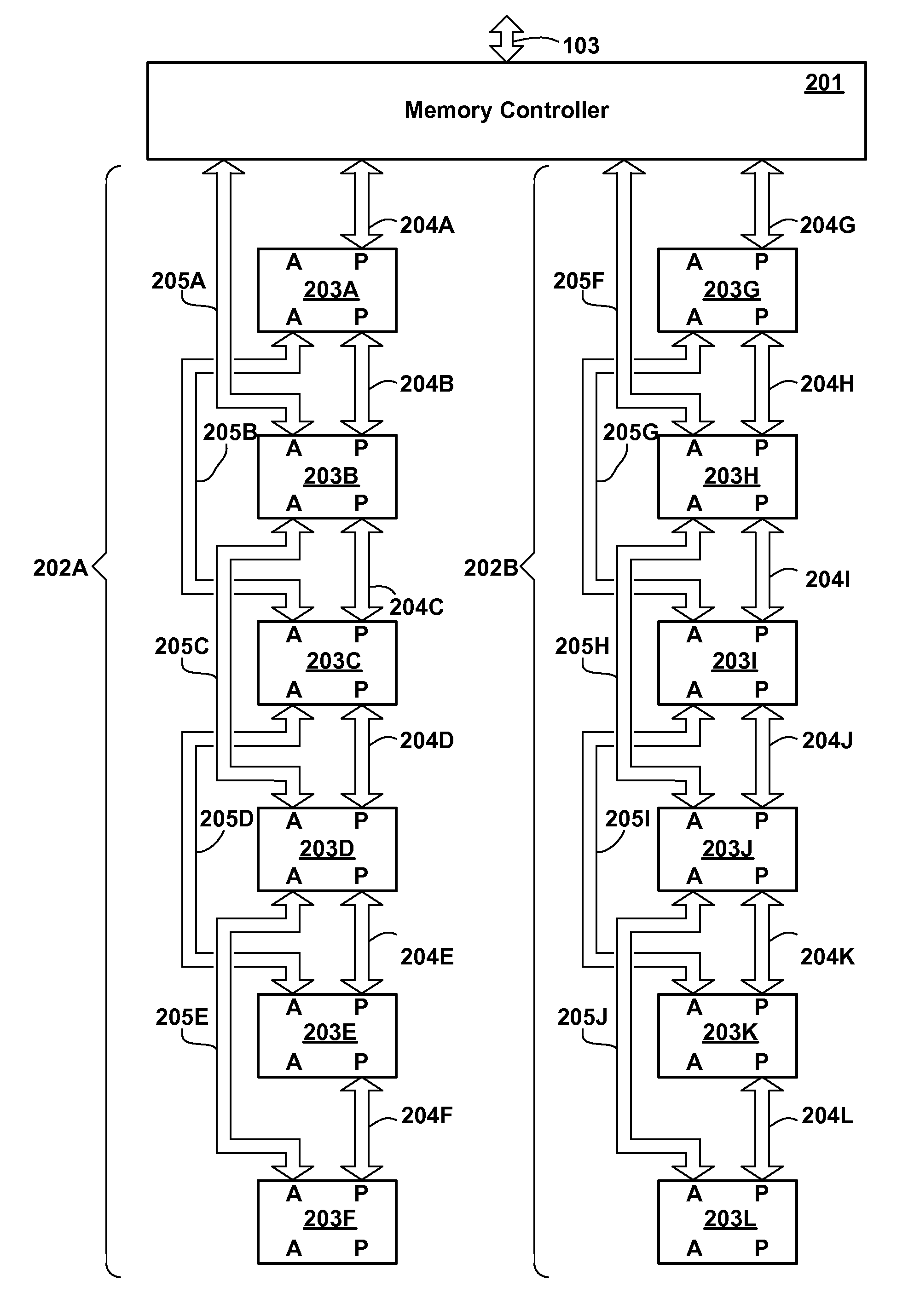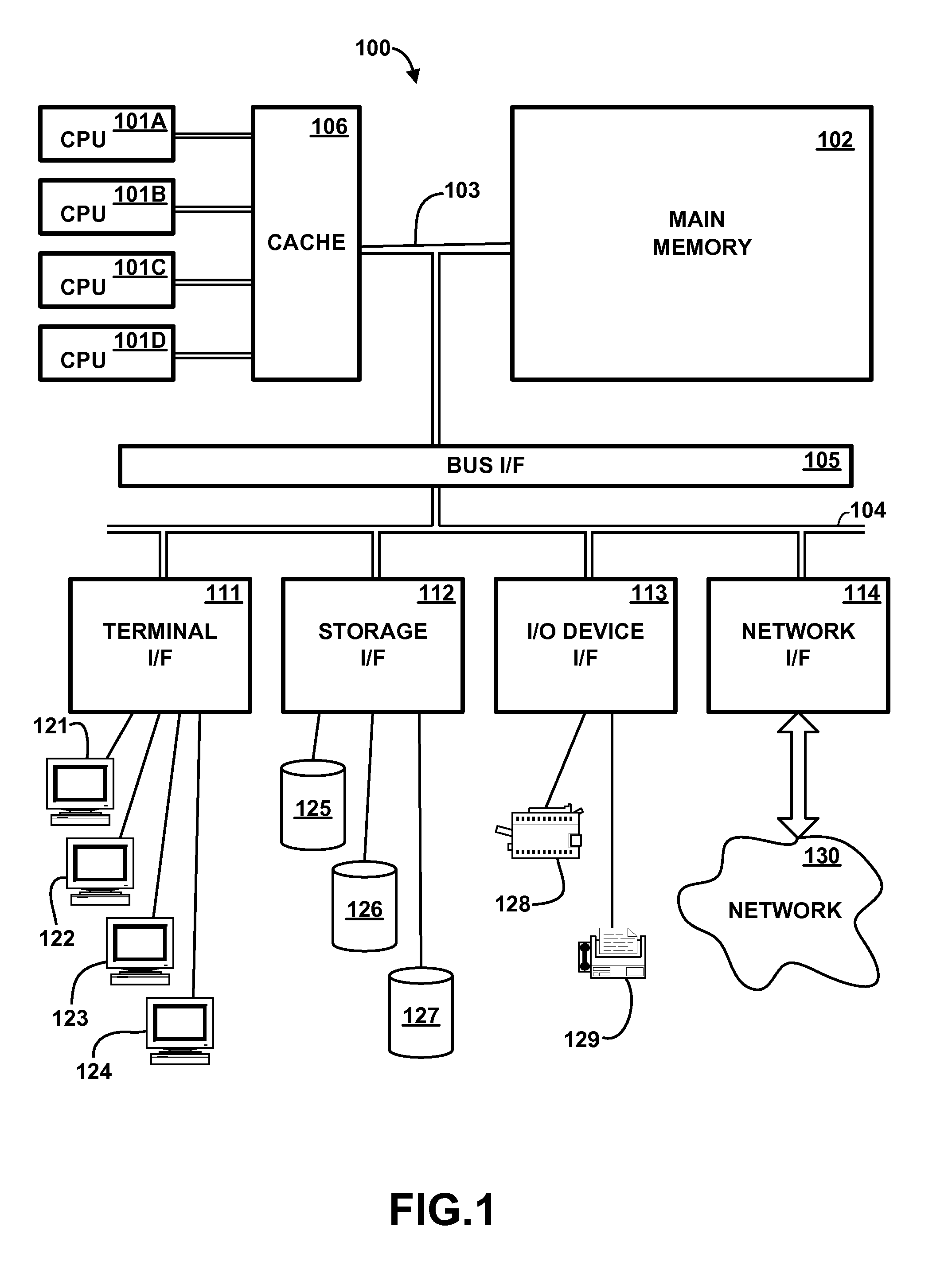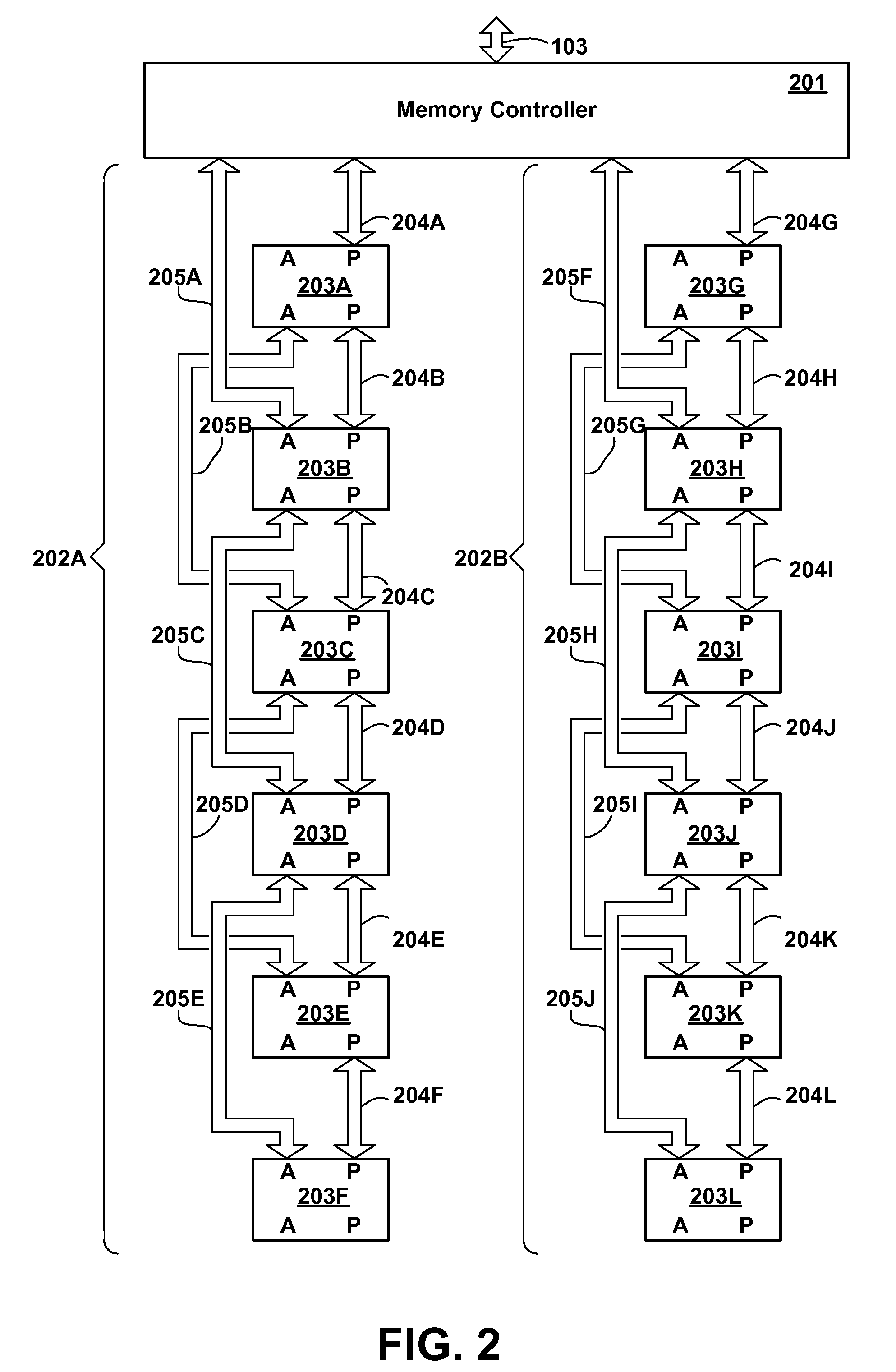Digital data architecture employing redundant links in a daisy chain of component modules
a technology of digital data and component modules, applied in the direction of memory adressing/allocation/relocation, instruments, error detection/correction, etc., can solve the problems of path consumption, memory subsystem and speed at which it operates, inability to perform useful work, etc., to reduce the average traffic on each link, reduce latency, and increase access efficiency
- Summary
- Abstract
- Description
- Claims
- Application Information
AI Technical Summary
Benefits of technology
Problems solved by technology
Method used
Image
Examples
Embodiment Construction
Future Memory Chip Overview
[0027]The present inventors envision a buffered memory chip module and memory chip architecture supporting chains of memory chips. Such an architecture is described in the following U.S. patents and commonly assigned copending patent applications, each of which is herein incorporated by reference: U.S. Pat. No. 7,345,900 to Bartley et al., issued Mar. 18, 2008; U.S. application Ser. No. 11 / 459,957, filed Jul. 26, 2006, entitled “Memory System Having Self Timed Daisy Chained Memory Chips”; U.S. application Ser. No. 11 / 459,969, filed Jul. 26, 2006, entitled “Carrier Having Daisy Chained Memory Chips”; U.S. application Ser. No. 11 / 459,983, filed Jul. 26, 2006, entitled “Carrier Having Daisy Chain of Self Timed Memory Chips”; U.S. Pat. No. 7,342,816 to Bartley et al., issued Mar. 11, 2008; U.S. application Ser. No. 11 / 459,997, filed Jul. 26, 2006, entitled “Daisy Chainable Self Timed Memory Chip”; U.S. application Ser. No. 11 / 459,974, filed Jul. 26, 2006, enti...
PUM
 Login to View More
Login to View More Abstract
Description
Claims
Application Information
 Login to View More
Login to View More - R&D
- Intellectual Property
- Life Sciences
- Materials
- Tech Scout
- Unparalleled Data Quality
- Higher Quality Content
- 60% Fewer Hallucinations
Browse by: Latest US Patents, China's latest patents, Technical Efficacy Thesaurus, Application Domain, Technology Topic, Popular Technical Reports.
© 2025 PatSnap. All rights reserved.Legal|Privacy policy|Modern Slavery Act Transparency Statement|Sitemap|About US| Contact US: help@patsnap.com



